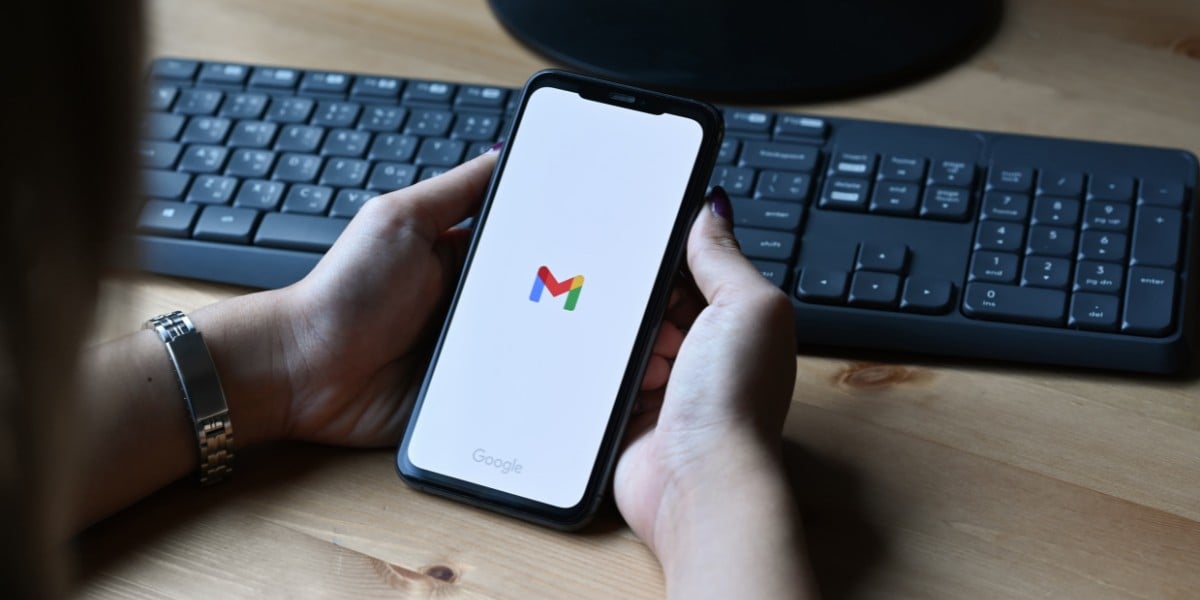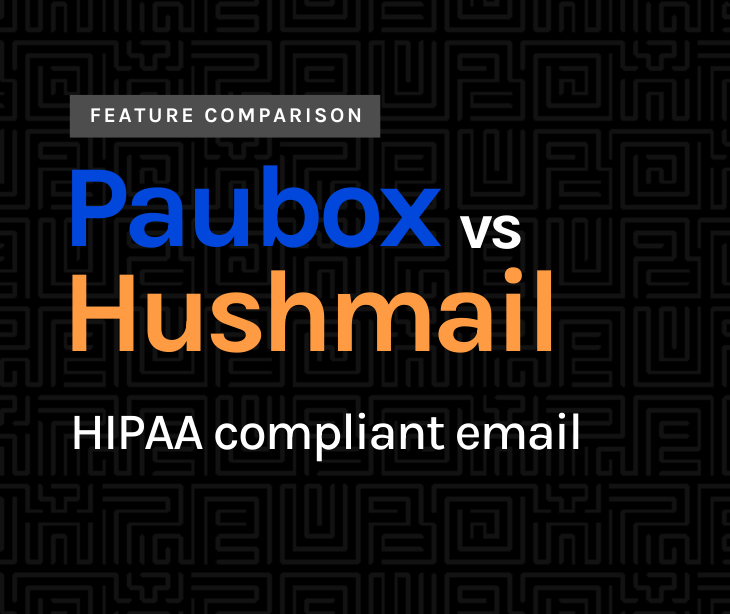
If you currently use a Gmail account and need to ensure HIPAA compliance, this article will guide you through the process of making your existing Gmail account HIPAA compliant. Free Gmail accounts cannot be HIPAA compliant, so the focus will be on transitioning to a Google Workspace account and implementing the necessary security measures to protect patient health information.
The growing importance of email security in healthcare
Healthcare organizations are increasingly targeted by cybercriminals, with email remaining one of the primary attack vectors. According to the 2024 HIMSS Healthcare Cybersecurity Survey, 63% of significant security incidents began with general email phishing attacks, while another 34% involved targeted spear-phishing campaigns. The financial implications are also severe, with IBM's 2024 Cost of a Data Breach Report revealing that healthcare data breaches now cost an average of 9.77 million per incident, down slightly from 2023 but still 2.5× higher than the global average of $ 4.88 million across all industries.
"Healthcare organizations must move to modern, cloud-hosted email systems as a baseline for security," says David Chou, Founder of Chou Group Healthcare Technology Advisory Services. "Equally important is ongoing education to protect staff from phishing and social engineering, which continue to be the most effective tactics used by attackers."
The limitations of free Gmail accounts for HIPAA compliance
Free Gmail accounts, while widely used for personal and business communication, are not designed to meet HIPAA's specific security and privacy requirements. Using a free Gmail account to transmit protected health information (PHI) poses several significant risks:
- No business associate agreement (BAA): Google will not sign a BAA for free Gmail accounts, which is a fundamental HIPAA requirement for service providers handling PHI.
- Limited security controls: Free accounts lack the administrative controls needed to implement and enforce security policies required by HIPAA.
- Inadequate access management: Free Gmail doesn't offer the strong user permission controls necessary to limit PHI access to authorized personnel only.
- Insufficient audit capabilities: HIPAA requires detailed access logs and audit trails, which are not available in free Gmail accounts.
- No technical support: Without professional support, security issues may go unaddressed, increasing vulnerability to breaches.
As a study about email security issues published in the Sustainability journal notes, "email security refers to protecting email accounts and communications against unauthorized access, loss, or compromise," and inadequate controls make email "a common method of hacking into a company’s network and stealing sensitive information." Free email accounts, lacking features such as encryption and multi-factor authentication (MFA), are vulnerable to threats like phishing, malware, and unauthorized access. The authors emphasize that "organizations can enhance their email security posture by establishing policies and using tools to protect against malicious threats such as malware, spam, and phishing attacks," proving why healthcare providers must avoid free email services for transmitting sensitive patient information.
The tools and technical safeguards that the study above refers to for enhancing email security against threats like phishing, malware, and unauthorized access include:
- End-to-end encryption (E2EE): Encrypts email content from sender to recipient, ensuring only authorized parties can read it.
- Transport Layer Security (TLS): Encrypts emails during transmission between servers to prevent interception.
- Secure/multipurpose internet mail extensions (S/MIME): Provides encryption and digital signatures for email content integrity and confidentiality.
- MFA: Requires users to provide multiple verification factors (e.g., password plus a code sent to a phone) to access email accounts, reducing unauthorized access risks.
- Role-based access control (RBAC): Limits email access and permissions based on user roles within the organization, ensuring only authorized personnel can view or send sensitive information.
- Data loss prevention (DLP): Monitors outgoing emails for sensitive content and enforces policies to prevent accidental or intentional data leaks, such as blocking unencrypted PHI transmission.
- Secure email gateways (SEGs): Act as filters between the internet and email servers to block malicious content like phishing emails, malware, and spam before they reach users.
- Audit trails and logging: Detailed records of email access and transmission events that help monitor compliance and investigate potential breaches.
The risks associated with free email accounts are not hypothetical. For example, Yahoo’s historic breach compromised 3 billion user accounts, exposing not just email addresses but also personal details and security credentials, which led to identity theft, financial fraud, and targeted phishing attacks. Similarly, Microsoft’s free email services have experienced incidents where hackers gained access to user metadata and exploited vulnerabilities for account takeovers. Even Gmail, despite Google’s security investments, remains a constant target for sophisticated phishing campaigns and exploits due to its massive user base.
Google Workspace
Google Workspace offers a suite of productivity and collaboration tools that can be configured to meet HIPAA compliance standards. By transitioning from a free Gmail account to a Google Workspace account, you gain access to enhanced security features and administrative controls necessary for handling PHI securely.
"Choosing technology partners and platforms that prioritize HIPAA compliance and hold a HITRUST certification is vital in healthcare," says Leonard Hamer, MBA, CMPE, Founder and CEO of Physician Select Management, "HITRUST certification provides our customers assurance that we have implemented robust security controls and procedures that comply with healthcare regulations and industry standards to protect sensitive data, including patient information, from breaches and cyberattacks."
Steps to make your Gmail account HIPAA compliant
Step 1: Transition to Google Workspace
Sign up for a Google Workspace account to start making your existing Gmail account HIPAA compliant. Visit the Google Workspace website and choose the appropriate plan for your organization. Google Workspace offers several tiers, with the Business Standard plan ($12/user/month) being the minimum recommended for healthcare organizations due to its enhanced security features.
Once you have set up your Google Workspace account, you can migrate your existing Gmail account to the new Workspace domain. Google provides migration tools to transfer emails, contacts, and calendar information from your existing Gmail account to your new Google Workspace account while maintaining data integrity and security throughout the process.
Step 2: Sign a BAA
An important step in HIPAA compliance with Google Workspace is signing a BAA with Google. A BAA is a contractual agreement that outlines Google's responsibility to handle PHI in compliance with HIPAA regulations.
To sign a BAA with Google, log in to your Google Workspace admin console, navigate to the Company Profile section, and click on "Show More." From there, select "Legal & Compliance" and then "Security and Privacy Additional Terms." Review the BAA terms carefully before accepting them.
Related: How do I sign a business associate agreement with Google?
Step 3: Configure security settings
Once you have set up your Google Workspace account and signed the BAA, you should configure the security settings to ensure HIPAA compliance. Start by setting up strong passwords for user accounts within your organization. Encourage the use of strong, unique passwords and consider implementing a password policy that enforces password complexity requirements.
Additionally, enable MFA for all user accounts. MFA adds an extra layer of security by requiring users to provide additional verification, such as a one-time password or a biometric factor, to access their accounts.
Furthermore, use Google Workspace's access controls to manage user permissions and restrict access to PHI. Grant access only to authorized individuals who require it for their job functions. Implement the principle of least privilege, ensuring users have only the minimum access necessary to perform their roles.
Step 4: Enable data encryption
Google Workspace provides encryption capabilities to protect PHI during transit and at rest. To enable encryption for your Gmail account, navigate to the Google Workspace admin console and enable email encryption settings. This ensures that emails and attachments sent within the Google Workspace environment are encrypted, adding an extra layer of protection for PHI.
Configure Gmail's security settings to enforce TLS encryption for email transmission whenever possible. TLS encryption helps protect email content during transit between email servers, reducing the risk of interception or unauthorized access.
Google Workspace automatically encrypts data at rest in their data centers, providing protection for stored emails and attachments. However, it's important to note that this encryption is managed by Google and may not provide the end-to-end encryption required for maximum security of sensitive health information.
Related: Comparing Google Workspace to Paubox for HIPAA compliant email (2024 update)
Step 5: Use a HIPAA compliant encryption software
Even though you have configured your Google Workspace to comply with HIPAA regulations, there may still be encryption gaps in the email setup of the recipients. The security of email communication depends on both the sender's and recipient's email servers supporting TLS. If the recipient's server does not utilize TLS, the connection will be insecure and could potentially violate HIPAA regulations.
To address this issue, healthcare organizations can turn to HIPAA compliant encryption solutions like Paubox, which offers a seamless solution for achieving complete HIPAA compliance in email communication. This solution involves encrypting all outbound emails by default to protect sensitive information, regardless of the recipient's email security capabilities.
Related: Why Google Workspace and Microsoft 365 aren't enough for complete HIPAA compliance
Step 6: Educate users on HIPAA compliance
Conduct regular training sessions to ensure that employees understand the importance of protecting PHI, recognize potential risks, and know how to handle PHI securely within the Google Workspace environment. Provide guidelines on proper email usage, data handling, and reporting procedures for any suspected security incidents.
Additional Security measures for HIPAA compliance
Regular software updates and patching
Keep your Google Workspace applications and any related software up to date by applying regular updates and patches. This helps address potential vulnerabilities and protects you against emerging threats.
Regular security audits and risk assessments
Conduct periodic security audits and risk assessments to identify potential vulnerabilities in your email system. Address any identified issues promptly to maintain HIPAA compliance. Matthew Fisher, Attorney at Fisher Health Law, notes: "The risk analysis certainly needs to occur first because the risk analysis informs how to implement the rest of the requirements under the Security Rule, so it has to be one of the first actions taken."
Implement DLP policies
Use Google Workspace's DLP features to automatically detect and protect sensitive information, such as social security numbers, medical record numbers, and other identifiers that could constitute PHI. Configure alerts and actions to be taken when potential PHI is detected in outgoing emails.
Develop a comprehensive incident response plan
Create a detailed plan outlining the steps to be taken in the event of a security breach or unauthorized access to PHI. This plan should include procedures for containing the breach, assessing its impact, notifying affected individuals, and reporting to relevant authorities as required by HIPAA.
FAQs
What is a phishing attack?
A phishing attack is a type of cybersecurity threat where attackers disguise themselves as trustworthy entities to trick recipients into revealing sensitive information, clicking malicious links, or downloading infected attachments.
What is malware?
Malware (malicious software) refers to any software designed to harm, exploit, or gain unauthorized access to computer systems.
What is account takeover?
Account takeover (ATO) occurs when cybercriminals gain unauthorized access to email accounts or other user accounts by stealing credentials, often through phishing or using passwords exposed in previous data breaches.
Subscribe to Paubox Weekly
Every Friday we'll bring you the most important news from Paubox. Our aim is to make you smarter, faster.




